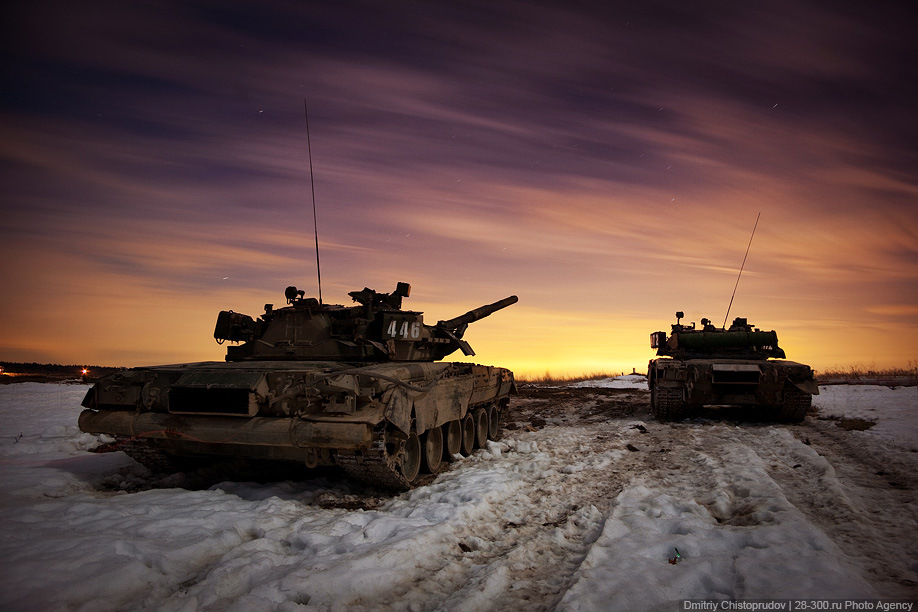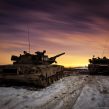
Russia Plans “Kavkaz-2012” as Test for Southern Military District
Publication: Eurasia Daily Monitor Volume: 9 Issue: 155
By:

In September, the Russian Armed Forces will stage a major exercise in the country’s Southern Military District (MD) aimed at testing aspects of the ongoing reform of the conventional elements of its military, including the new commands, integrated operations, and digitized command and control (C2). However, given its proximity to the South Caucasus and the memory of the Five Day War in August 2008, the Russian Defense Ministry has actively attempted to downplay “Kavkaz-2012” (“Caucasus-2012”), due to be held September 17-23 at the Prudboy, Kapustin Yar, and Ashuluk and Rayevskoye training ranges in Volgograd and Astrakhan Regions, as well as Krasnodar Krai in the Southern MD. Kavkaz-2012 will involve more than 8,000 Russian military personnel, including ground forces and naval units, as well as precision strike systems, though defense officials want to promote the exercise as quiet and normal. On August 8, Russian Deputy Foreign Minister Grigoriy Karasin blasted Tbilisi for fuelling controversy over Kavkaz-2012 for more than one year since the strategic exercise was first announced (RIA Novosti, August 8).
It is therefore important to establish what senior Russian defense officials say will not be involved in the exercise as they seek to reassure the international community about Kavkaz-2012 and examine the precise content of the exercise structure and purpose. According to Colonel-General Aleksandr Postinkov, the Deputy Chief of the General Staff, Kavkaz-2012 will have no foreign observers since the exercise relates to “internal security” and the protection of the Russian state; consequently such invitations were deemed “inadvisable” and “unnecessary.” Moreover, Postnikov stressed that planning for the exercise began in 2011, and was a “logical continuation” of operational-strategic exercises since the reform of the Armed Forces commenced in late 2008. It is therefore not “aimed at other countries,” and has “nothing to do with events in other countries, including Georgia”; it is simply a planned exercise. In order to support this assertion, Postnikov stated that the General Staff deliberately excluded subunits from Russian military bases in Armenia, Abkhazia and South Ossetia. Kavkaz-2012, Postinkov affirmed, will “unfold on Russian territory,” and without foreign participation (Interfax, RIA Novosti, August 7).
Postnikov has been involved in the General Staff planning for Kavkaz-2012 in not only his present post, but also in his former role as the Commander-in-Chief of the Ground Forces. As one of the few generals who actively supported the “new look” reform, particularly associating himself with the need for modernized automated C2, promoting lectures and seminars for senior officers on network-centric warfare, Postnikov understands the experimental value placed on these exercises by the top brass. Indeed, on the issue of what will be included in Kavkaz-2012, Postnikov said it will witness live firing of Iskander missile systems, adding that airborne and sea-based cruise missiles will be used, as well as Bastion anti-ship missiles (Interfax, August 7).
Postnikov explained that Kavkaz-2012 would involve “up to 8,000 personnel, no more than 200 combat armament systems and vehicles, and about 100 artillery pieces of various types will be used in the exercise. The naval group is quite small too, no more than 10 ships and boats. Aircraft will fly no more than 80 sorties.” The Russian Black Sea Fleet and the Caspian Flotilla will practice “joint missions with the Ground Forces” during the exercise. The purpose of the naval involvement is to “ensure favorable conditions for naval activities and ensure security,” rehearsing rescue missions, and other tasks (Interfax, August 7).
In an interview to mark Airborne Forces (Vozdushno-Desantnye Voiska – VDV) Day on August 2, Colonel-General Vladimir Shamanov outlined the VDV elements that will participate in Kavkaz-2012. The exercise will involve the 7th Air Assault Division and the 98th Airborne Division, with subunits from the former being airdropped on Kapustin Yar training range. An air assault regiment will be involved in an “opposed forces” tactical exercise with a motorized rifle brigade at Ashuluk training range. The 7th Air Assault Division will also rehearse a number of missions in coordination with the Black Sea Fleet on Rayevskoye training range in Krasnodar Krai. Shamanov said that the VDV’s combat training has not substantially changed during 2012, only switching instead to concentrate on tactical echelons, rather than regimental or divisional levels (see EDM, August 7; Krasnaya Zvezda, August 2).
Shamanov’s views on Kavkaz-2012 support the opinions expressed by Postnikov; the exercise is part of the normal combat training in the Russian Armed Forces, and many of its features relate to testing aspects of the reform, which the General Staff is still trying to correct or refine in certain parts. Postnikov explained that Kavkaz-2012 aims to “test the efficiency of the multilevel command and control system,” especially the use the computerized fire-control system for high-precision weapons, which he said “are the future” (Interfax, August 7).
In support of these interpretations of Kavkaz-2012, it is necessary to recall that since the reform of the Russian Armed Forces was initiated following the Five Day War, major exercises have been held to test operational integration, the automated C2 system and the brigade structure, as well as logistical support elements. Kavkaz-2009, Zapad-2009, Lodoga-2009, Vostok-2010 and Tsentr-2011 all fit this pattern of staging operational-strategic exercises to examine how the changes in the Armed Forces were being implemented. Since the changes occurred to the MD structure and joint strategic commands were introduced in December 2010, Kavkaz-2012 marks the first major exercise concentrating on Southern MD (Interfax, September 23, 2011; Ekho Moskvy, July 3, 2010; Krasnaya Zvezda, November 14, 2009; Krasnaya Zvezda, September 30, 2009; Interfax, June 29, 2009).
During this period of military exercises, the “Kavkaz” series was essentially placed on hold. While it is correct to note that Kavkaz-2008 rehearsed the operation that followed within two weeks of its conclusion – though Russian forces performed less well in reality – Kavkaz-2012 is the first such military exercise in southern MD aimed at road testing the “new look” organizational changes. The 5th Motorized Rifle Brigade will also test at brigade level the automated Unified System for Command and Control at the Tactical Level (yedinaya avtomatizirovannaya sistema upravleniya takticheskim zvenom – YeSU TZ) which explains the importance attached to C2 by Postnikov and the inclusion of the computerized fire-control system for high-precision weapons. The exercise, consequently, is not primarily calculated as a threat to Russia’s neighbors; but it is a key feature in Moscow’s ability to assess the global changes occurring in its Armed Forces.




